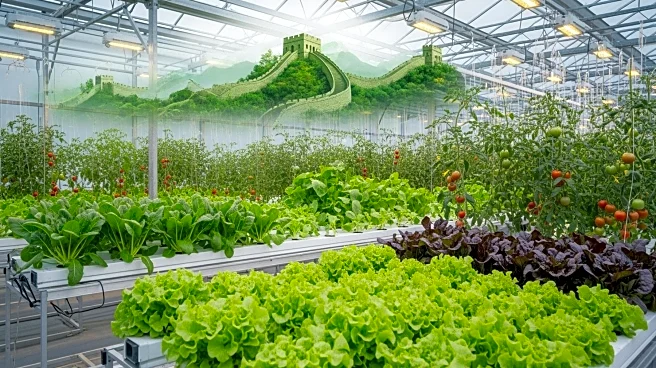What's Happening?
At the United Nations Food and Agriculture Organization Global Exhibition in Rome, global experts praised China's innovations in sustainable agriculture. The exhibition, themed 'From Seeds to Foods', showcased China's Geographical Indications Environment
& Sustainability System, which integrates geospatial tracing, big data, IoT, and AI tools to protect ecological foundations of geographical indication products. The system supports eco-friendly production and consumer trust in specialty agricultural products across 26 demonstration sites in China. Bhutan and Nepal have adopted the system, benefiting local farmers and enhancing product marketability.
Why It's Important?
China's advancements in sustainable agriculture highlight its commitment to science-driven sustainability and ecological protection. The Geographical Indications Environment & Sustainability System represents a significant step in linking ecological protection with rural revitalization. The system's adoption by countries like Bhutan and Nepal demonstrates its potential to enhance agricultural modernization and marketability of special products. This innovation aligns with FAO's vision of better production, nutrition, environment, and life, showcasing China's role in global agricultural sustainability.
What's Next?
Indonesia plans to initiate the comprehensive application of the Geographical Indications Environment & Sustainability System to drive agricultural modernization. The system's continued adoption by other countries could further enhance the recognition and value of special agricultural products, showcasing unique regional characteristics. China's commitment to science-driven sustainability may lead to increased global collaboration and innovation in sustainable agriculture.
Beyond the Headlines
The system's integration of advanced technologies like AI and IoT in agriculture represents a shift towards more environmentally responsible value chains. This approach could influence global agricultural practices, encouraging other countries to adopt similar technologies for sustainable development. China's leadership in this area may foster international cooperation and knowledge exchange, promoting global agricultural sustainability.

















